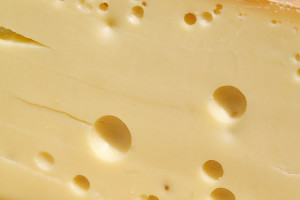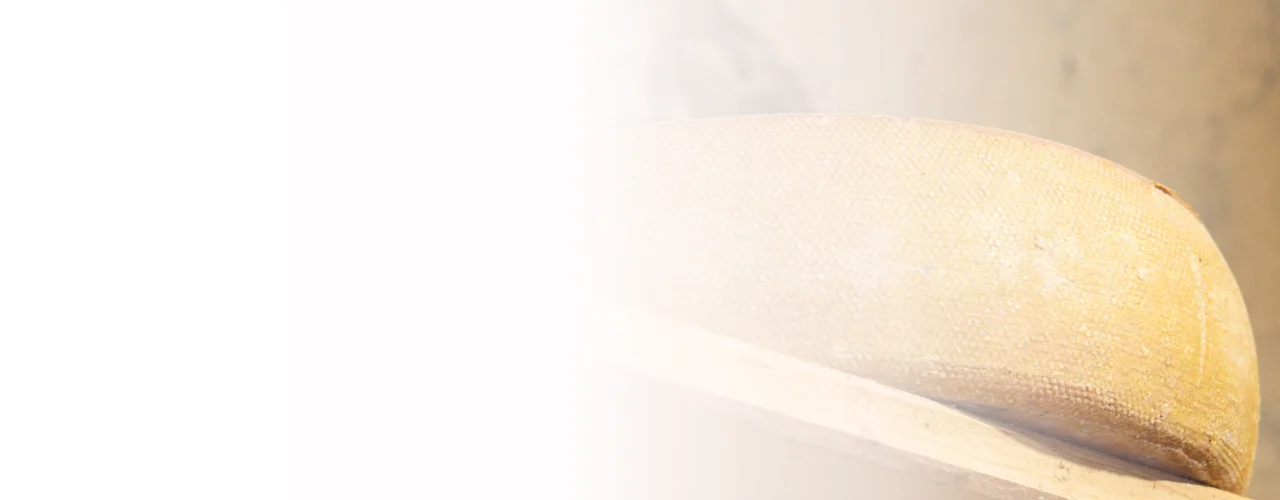Cheese encyclopedia
Holes in the cheese
Technical term for holes in cheese
The large round holesThe large round holes (round holes, fermentation holes) are caused by fermentation gases of bacteria (for example, the propionic acid bacteria in Emmentaler, etc.). » More info (round holes, fermentation holes) are caused by fermentation gases of bacteriaBacterium Linens (red culture bacteria) are brushed with salt water on the cheese. » More info (for example, the propionic acid bacteria in Emmentaler, etc.).

The “broken holes” are formed when the curdAs break (or cheese curd) is called in the dairy, the resulting material, which is formed from the milk by the addition of rennet or lactic acid to the milk breakage. » More info is not enough pressed after form filling and air is “locked in”.
A mixed hole spreading occurs when in addition to the break holes round holes (fermentation holes) grow. Slit holes may occur as a result of pressing the curd.
Back to the cheese encyclopedia


















